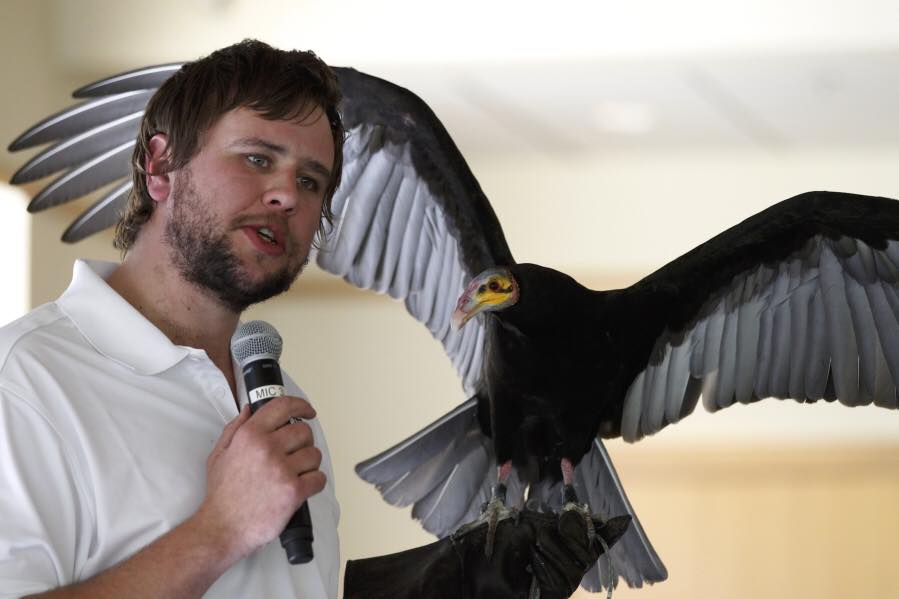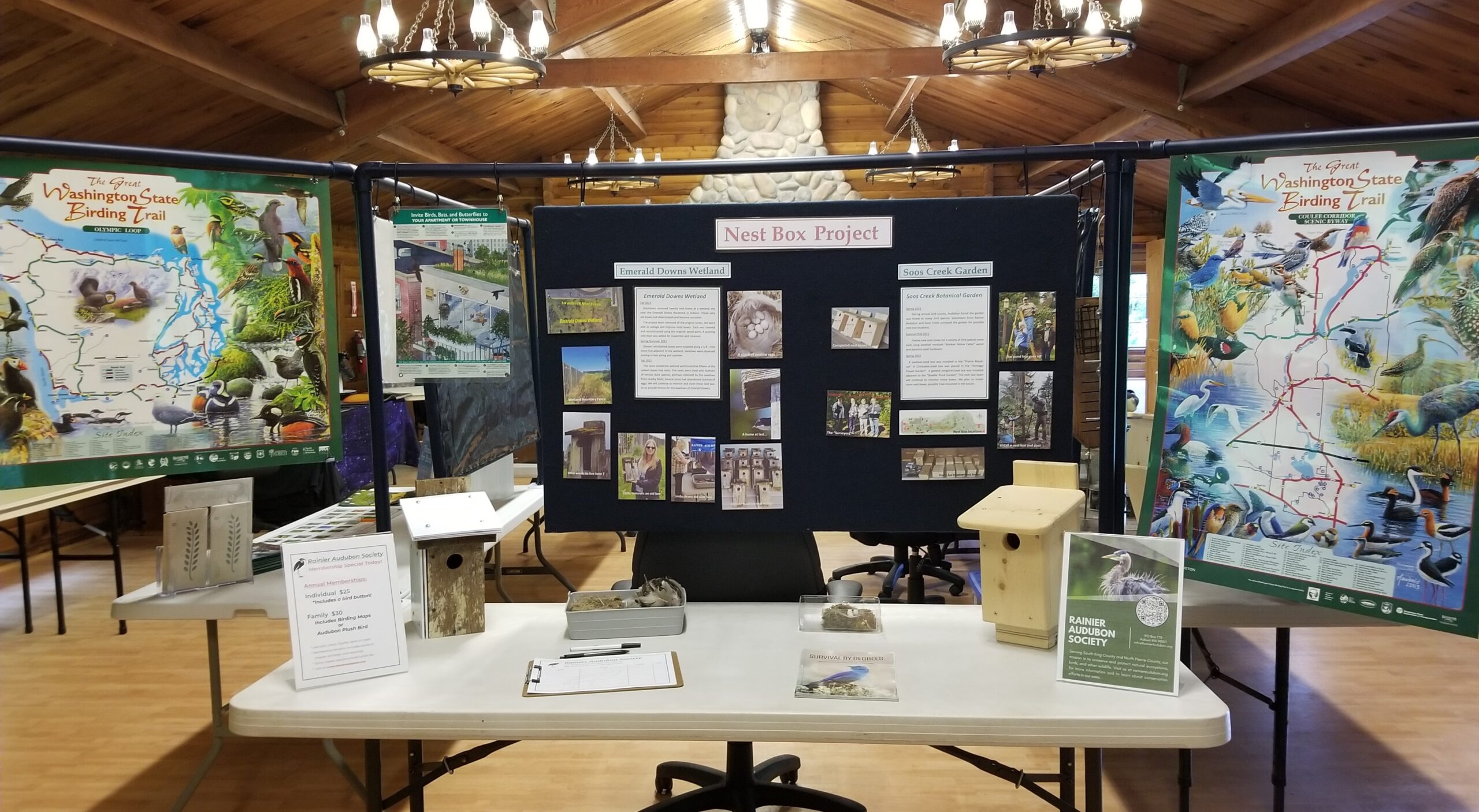

Seen & Heard: April 2022 – CBC Results
by Calen Randall



The 41st edition of the Rainier Audubon Christmas Bird Count looked like a typical CBC in the Midwest or East Coast rather than a Pacific Northwestern count. Sub-freezing temperatures greeted CBC leaders in the morning, snow blanketed the ground, and ice covered any standing water. The forecast called for a cold and slushy day, but the atmosphere was merciful and outside of some light afternoon rain, the weather was mundane and dry. However, the weather played an integral role in count totals.
With most ponds, creeks, and fields frozen over, waterfowl totals were especially impacted. A mere 358 Cackling Geese were sighted on the count, less than a fifth of last year’s total! On the flip side, several flocks of Snow Geese were glimpsed on this year’s count, while none were seen last year. Perhaps the chilly temps and snow pushed flocks further south than normal. Interestingly, Canada Goose totals were nearly the same between both years. American Wigeon, Mallard, and Northern Pintail totals were significantly lower this year, while Hooded Merganser, Greater & Lesser Scaup, and Harlequin Duck totals increased. 2022’s count more than tripled 2021’s Eurasian Wigeon count with 18 seen in this year’s count compared to just 5 last year. Often tricky to find any in our count circle, a whopping 31 Wood Ducks were spotted.
Snow Geese were not the only species moving into the area with the snowy weather. It was a banner year for Red-breasted Sapsuckers. Many made the journey down to lower elevations. Overall, CBCers found 20 Red-breasted Sapsuckers, breaking the previous high count of 18 and far eclipsing last year’s total of 3. Other woodpecker species totals were roughly the same as last year’s.
The most striking factor of the count was how tough the snow, ice, and cold was on the birds. A notable example was Virginia Rails. Rarely during winter are Virginia Rails seen, but you can often hear their happy pig-like grunting emanating from local marshes. However, this year the rails were silent. Several groups noted that they did not hear any rails calling, but they saw several slinking around frozen marshes and ponds in search of any food. The snowy weather was tough on another marsh-dweller, the Marsh Wren. Only four were recorded on the count. Many found songbirds like Varied Thrush and Spotted Towhee, who like to scratch around in the leaf litter, had taken cover in dense forest, where large coniferous trees sheltered prevented the forest floor frow getting snowed over. On a lighter note, it was entertaining to watch mixed flocks of Ruby-crowned and Golden-crowned Kinglets skitter lithely around on the surface of the snow.
While bird totals were on average lower than normal, CBC leaders still wracked up an impressive 124 count day species! That’s especially remarkable considering notable misses like Cinnamon Teal, Cedar Waxwing, and Red Crossbill. Several species only popped up once on the count. Jay Galvin and Dan Streiffert spotted our only Hutton’s Vireo in Auburn. Cindy Flanagan found the resident American Dipper on the Cedar River in Maple Valley. Steve Johnson’s hummingbird feeder yielded the only Orange-crowned Warbler. Only one Purple Finch was seen on the entire count, a singing male at the Riverview Marsh in Kent. The count featured some notable highlights. Alex Meilleur spotted a pair of Long-billed Dowitchers and a trio of Savannah Sparrows in Auburn, Charlie Wright scoped in ten Brant on the Puget Sound, and Jim Flynn and Marissa Benavente watched a cluster of Black Turnstones huddled on a Redondo dock.
This year’s CBC came with great anticipation of one particular finch species, the Lesser Goldfinch. A few months ago, I wrote a Seen and Heard article about some Lesser Goldfinches that began visiting our yard in November. As we drew closer to the day of the count, I grew more eager. Would this finally be the year that Lesser Goldfinch were reported on the count? Thankfully, it was meant to be. At 9 AM on the day of the count, my sister, Carley, noted six Lesser Goldfinch clustered on our neighbor Richard’s feeders. Add Lesser Goldfinch to the all-time list!
Thanks again to all our leaders and backyard participants!



